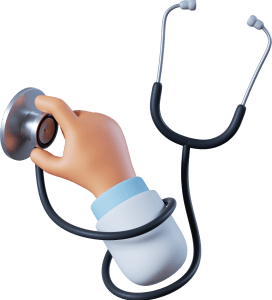Op. Dr. Osman Çelik
Kidney stone
Kidney stones come in different sizes and shapes. Some are very small and can be passed spontaneously in the urine, while others can be larger and require medical attention. Kidney stones are often associated with factors such as excessive fluid intake, poor nutrition, excessive salt intake, or a family predisposition.
Symptoms of kidney stones can include severe back pain, abdominal pain, blood or cloudiness in the urine, a frequent need to urinate, and nausea. If you suspect you have kidney stones, it is important to see a doctor. A doctor can diagnose you with a physical exam, urine tests, blood tests, and imaging tests.
Treatment for kidney stones varies depending on the size, location, and symptoms of the stone. Small stones can usually be passed in the urine, while larger stones may require medication, ultrasound, or surgery. Dietary changes are also recommended to prevent kidney stones from reoccurring.
It is important to remember that kidney stones can lead to serious complications. Therefore, it is important for people experiencing kidney stone symptoms to consult a healthcare professional without delay.


